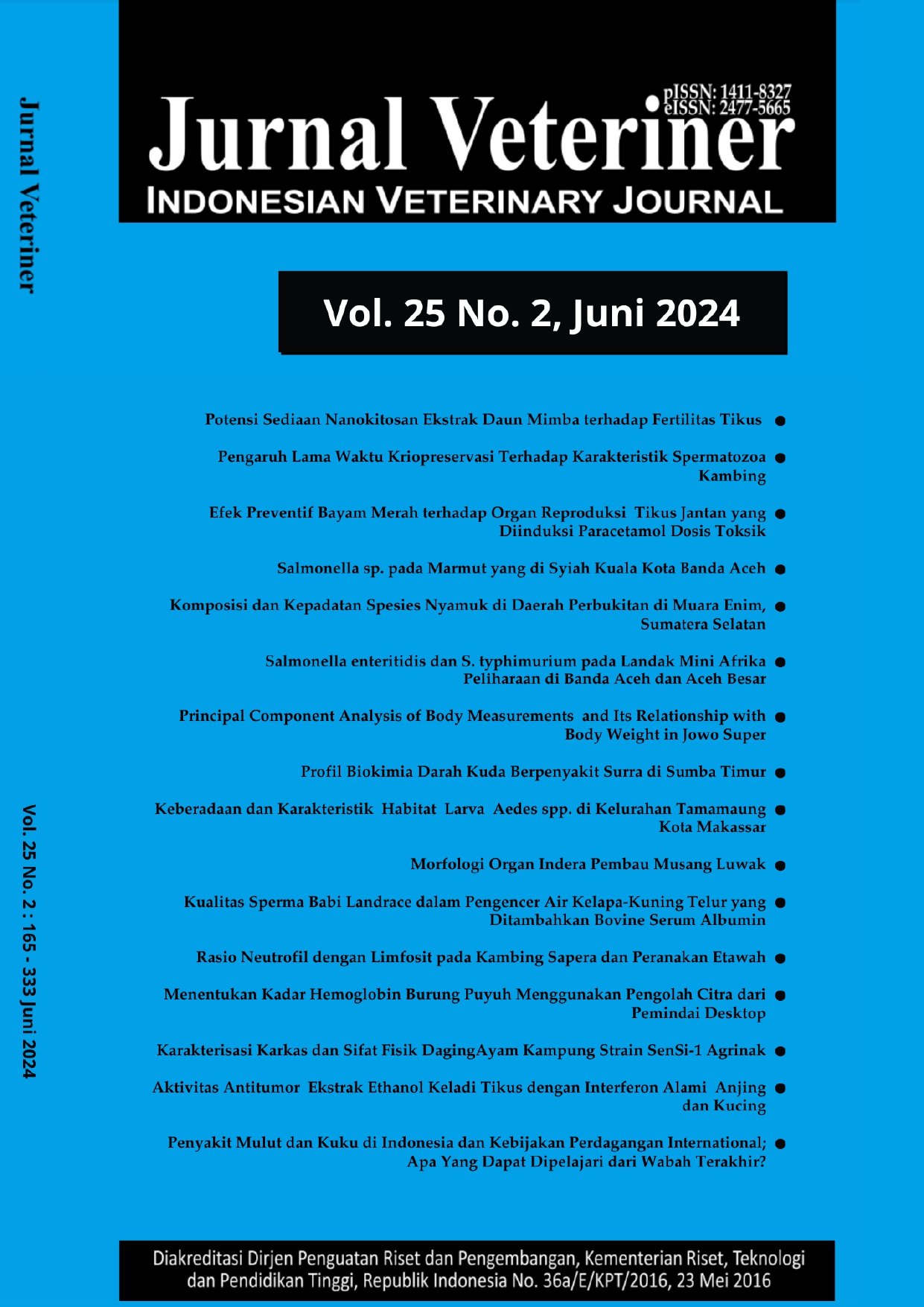Effect of Cryopreservation Duration Time on Post-Thawing Sperms’ Characteristics of Goat Semen
Abstract
Cryopreservation is a technique utilized to store spermatozoa with the aim of preserving the quality of frozen semen. The quality of spermatozoa after thawing is a critical factor influencing the success of Artificial Insemination (AI). This decline in quality can be attributed to factors such as exposure to extreme temperatures, formation of ice crystals, reduced membrane permeability and the generation of Reactive Oxygen Species (ROS). Given this decline in quality, it becomes imperative to assess spermatozoa quality at the cellular level. This study was aimed to investigate the impact of storage time on frozen goat semen on spermatozoa membrane integrity, levels of Malondialdehyde (MDA), and sperm DNA fragmentation. The samples utilized included frozen goat semen stored for less than two years and six years, subjected to a thawing process at 37°C for 20 seconds. Data pertaining to the percentage of spermatozoa with intact membrane integrity, sperm DNA fragmentation, and MDA levels (nmol/L) were analyzed using a paired t-test with a 95% confidence level (? = 0.05). The findings of this study revealed that the duration of cryopreservation may not significantly impact post-thawing DNA fragmentation and MDA levels (p>0.05). However, a moderate decrease in sperm viability and intact plasma membrane (IPM) was observed with increasing cryopreservation duration (p<0.05). Furthermore, the IPM parameter emerged as a potentially suitable indicator for assessing the quality of post-thawing frozen semen, alongside sperm viability and motility.



















